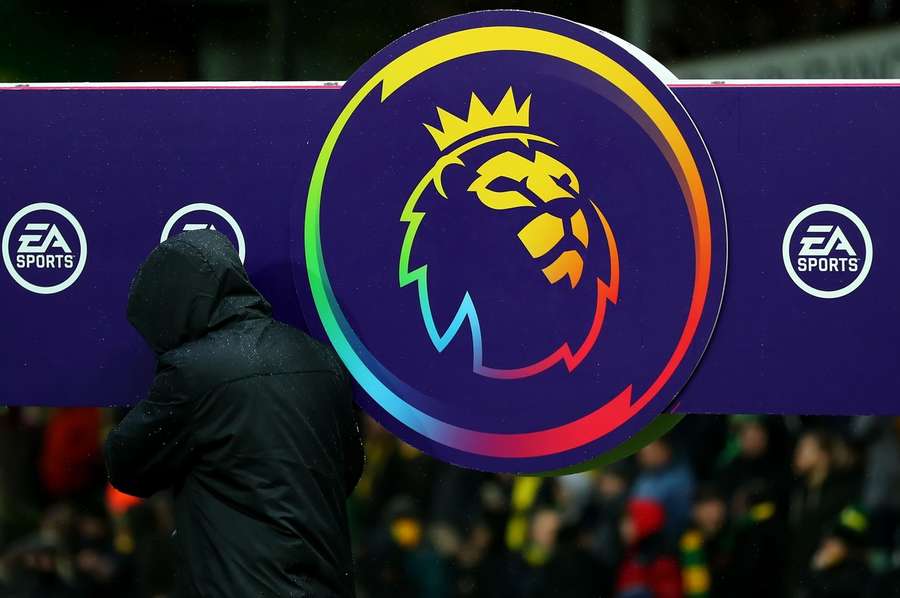It feels like a never-ending trend that England's top-flight can afford to drop tens of millions of pounds on players in order to remain competitive domestically.
So much so, even clubs at the bottom of the table have readily invested gigantic fees in a gamble to avoid the drop, leading chief executives of other major European leagues to bemoan the spending power of the Premier League.
The vast sums of money, inflated figures and huge amounts of privately-held wealth are nothing new in the English game, with fans having become accustomed - even numbed - to the astronomical figures quoted in the press and reported on in yearly reviews.
From the days of Russian oligarchs and private investors right through to celebrity-backed groups and state ownership, there seems no end to the tsunami of money flowing into Premier League football from across the globe. The questions remain: how have we got here and where will it end?
'The bubble just gets bigger'
"I've been doing this for 15 years and I get asked every year, 'when does the bubble burst?'," Dr Rob Wilson, Football Finance Expert at Sheffield Hallam University tells us.
"Naively, when I first started I said 'it'll be fairly soon because you can't substantiate these losses for too much longer'. But what we've seen is the bubble continues to just get bigger. That's what we saw with the European Super League.
"For all of the faults associated with that project, what it was essentially promising was a much bigger package for TV rights for a select number of clubs. So actually we would've just lifted the number of zeros up again."
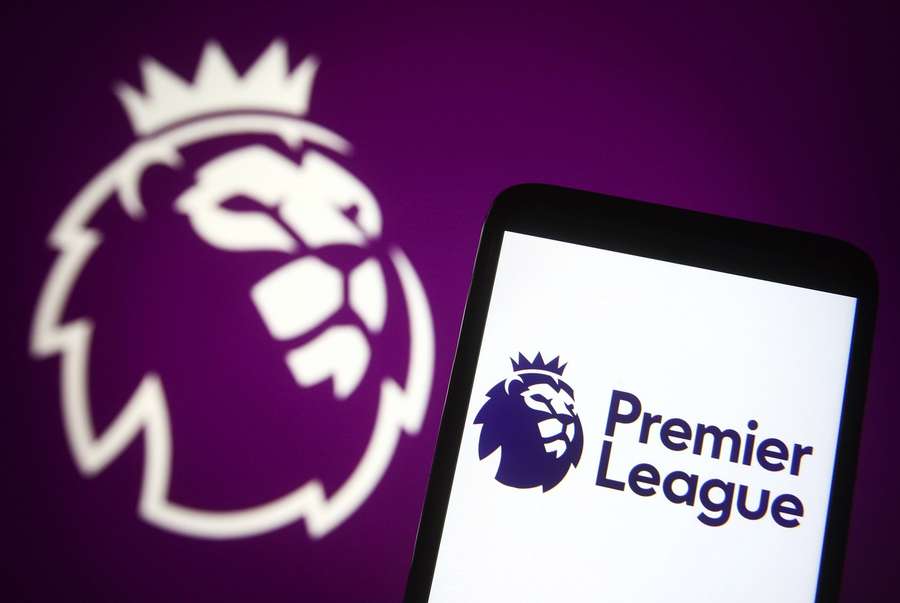
English football has dominated the financial tables of the sport's elite leagues for decades now, finding its beginnings with the formation of the Premier League in 1992. While the star-studded powerhouse clubs of Serie A and La Liga continued to attract the top talent and glamour throughout the 90s, the Premier League soon took a stranglehold at the turn of the millennium.
But it wasn't immediate. In fact, it was years in the making.
Broadcast rights boom
"If you think back to the 50s, 60s, and early 70s and the situation in professional football, you could say it was illustrated by overspending, horror, and poor infrastructure. Things like stadiums being really poor, lots of hooliganism, things weren't in a great place," Dr Wilson continues.
"Then into the 80s come the disasters - Heysel, Bradford, Hillsborough - which really were a product of hooliganism, the stadium infrastructure, and poor policing. There was a view that football is just a post-industrial game and that's about it, it should just be sat in the dark ages.
"And whilst people always played football, as a spectator sport and entertainment business it was essentially dead."
Around this time, the English First Division began discussions with BSkyB and British Satellite Broadcasting - two companies that were loss-making at the time. The businesses decided they needed to merge and in doing so opted to use sport as a way of generating subscriptions, which would ultimately bring stability and profits.
"So the Premier League is born in 1992 for £38 million, and TV rights were in that year basically a promise to all the clubs: 'We'll solve all your issues off the field by giving you these massive handouts and then you can improve the standard of the game.' Fast forward 30 years, and that's exactly what they've done."
The money has continued to roll in ever since. The league's current deal with Sky Sports, BT Sport and Amazon for live games runs from 2022/23 to 2024/25 and is worth £5 billion, with the bidding for the next rights cycle scheduled to kick off later this year.
According to Sportscriber.com, for the 2021-22 season, each Premier League club received an equal sum share of £34 million from the deal, with the likes of Manchester City, Manchester United, Liverpool, Arsenal and Chelsea each receiving an additional figure between £28 million and £35 million based on having more of their games shown on live television.
The figures then drop as you descend down the league culminating with the lowest payout being given to relegated Sheffield United, who still received a total sum of £96.5 million.
While the domestic rights package has plateaued somewhat (in 2019 it actually reduced to £4.54 billion from £5 billion, with the Covid pandemic also having an impact), what separates the Premier League from its European counterparts is its international rights package - where the gulf really begins to show itself.
"The Premier League carved up international territories and they sell those packages in a different way. So, 20 years ago, you may have a package that was for the Americas, and let's say those packages are now split by country. You've got Canada, Mexico, Brazil, USA and so on, and the cumulative total of those is much, much higher than it was before.
"I still think there is a way to go on international rights, which means the market (for the Premier League) is still increasing, but we will not see the domestic growth that we've seen over the last 25 years or so."
Finding deeper pockets
Naturally, such huge amounts of money would be attractive to any investor, and as the English game has grown more lucrative, the ceiling has been raised for those looking to get in on the action.
"Back in the 60s, 70s and 80s, the ceiling was with the local businessman that has done pretty well and has bailed out his local football team, perhaps because they're a fan.
"Yet their pockets are only so deep. With money going in through the broadcasting rights, professionalisation, development of stadia, a better entertainment business, more broadcasting rights, more sponsorship and commercial rights, the losses that those original owners are making still persist, but you need to replace the local business person with the national business person. Their pockets are a bit deeper.
"Then you replace them with - in the early 00s - a foreign owner that's got even deeper pockets, or someone with leveraged finance like with Manchester United. So the core problem has never gone away. The number of zeros that have sat on the back end of those issues has just increased in line with the revenues that have been on offer.
"As a result, we have almost got a linear relationship between the losses at professional football clubs and the broadcast rights.
"The game has become so globalised now that we are into our next phase of owners with even deeper pockets to underwrite these clubs. That's where you start to talk about state investment through royal families and sovereign wealth funds that we've obviously seen with Newcastle United - and we may see with Manchester United in the next few weeks."
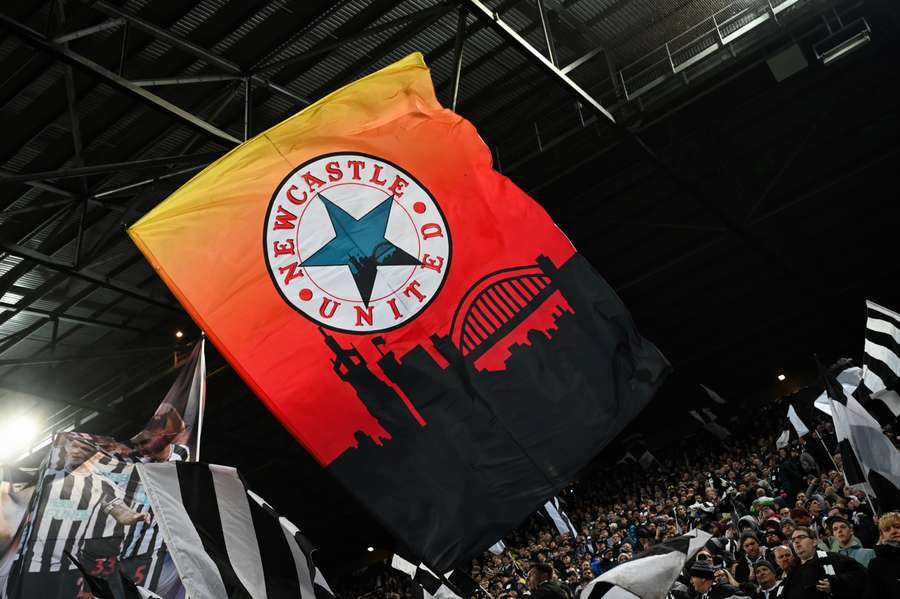
As the game has evolved off the field, so too have the regulatory processes which have made it more attractive to these kinds of investment funds looking to profit from a global football entertainment product.
This has given rise to terms such as 'sport-washing'; nations with internationally-questioned human rights records looking to legitimise themselves in the eyes of the world via the means of the world's most popular sport.
This is how we end up with the likes of Newcastle - among other sports brands - being effectively owned by the public fund of Saudi Arabia.
Another issue, particularly when using the Middle East as an example, is that natural oil reserves and wealth-driving resources are swiftly running out.
"A lot of Middle Eastern companies are thinking about what's going to generate their wealth when it eventually does, and they decided sport is the way. So they invest heavily while they've got their natural resources to then reap the benefits of the tourism that comes with re-imaging the area, utilising major event programs like the World Cup and domestic cup finals."
Chelsea's dealings
Another key talking point of the past 12 months has been the financial dealings of Chelsea, hurriedly sold by former owner Roman Abramovich after his UK assets were frozen amidst sanctions over Russia's war in Ukraine.
Technically, the club should not have been sold but the British government made concessions "because of the public good that is football", Dr Wilson explains.
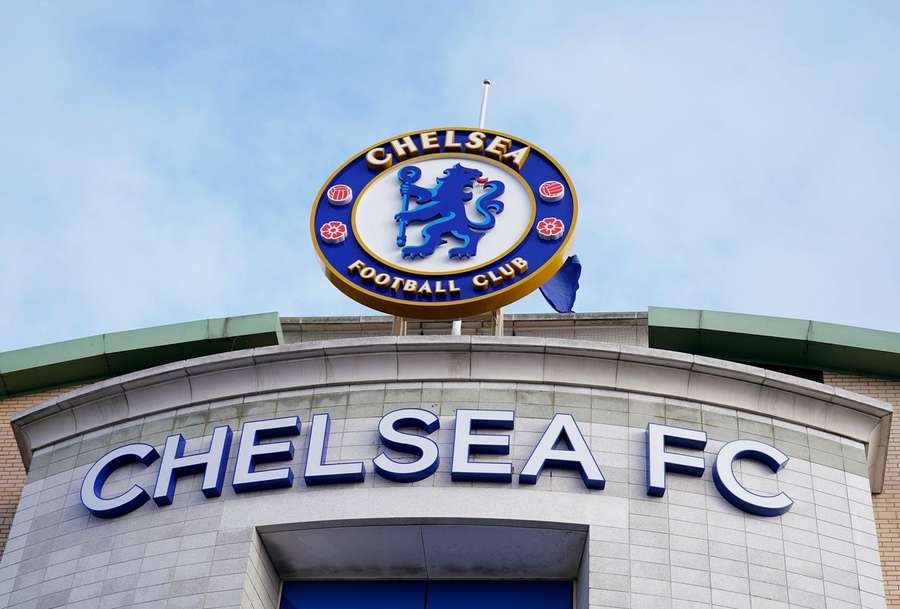
"If anybody wanted to be really harsh, they could have said that the sale should never have happened and the government should have made sure that the asset remained frozen."
Whether the government would have done the same for a smaller, less financially powerful club is up for debate.
Abramovich setting the benchmark
Roman Abramoch arguably created the blueprint for major foreign investment coming into the Premier League when the Russian oligarch purchased the west London club in 2003 for a reported £140 million. He ushered in a new trend of signing international stars from across the globe, bringing newfound and swift success to Stamford Bridge and sparking debates about the idea of 'buying the league'.
"Chelsea lost the thick end of a million pounds a week during the Abramovich era and it was totally unsustainable as a business model.
"Post-FFP (Financial Fair Play), it became much more sustainable. But that's where the term 'financial doping' comes in: you pile loads of money in at the very start and then you reap the benefit of that success. That's also what's happened at Manchester City.
"Eventually, Abramovich and Mansour realised that they needed to be more responsible, but you've already put in that investment so your sporting performance goes up, and if your sporting performance goes up, you get more money as you're in European competition, you're winning the Champions League and Premier League.
"Abramovich was owed something in the order of about £2.2 billion for the acquisition of the football club, and I think the final deal total was around £4.2 billion - split in two ways.
"Bohley purchased the football club and the debt from Abramovich for the £2 billion, and then he put up another £2-point-something billion for infrastructure and investment costs associated with the acquisition, which helps understand why they're doing what they're doing right now in the market. They're more liquid."
'Amortisation' and eight-year contracts
"Chelsea are signing players like Mykhailo Mudryk on really long contracts to amortise that value. Meaning, if you've got a player like Enzo Fernandez who cost £100 million, you sign them over five years, you amortised £20 million a year and that helps you comply with FFP - you never actually put that £100 million in."
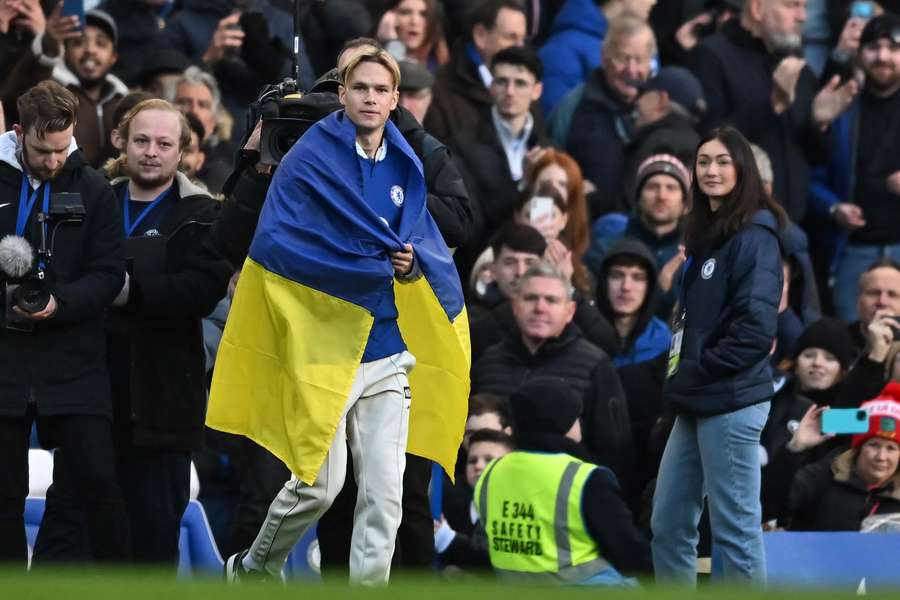
Breaking up their payments and contracts over eight or nine years means the amortisation charge is much smaller, which makes them technically compliant with any FFP restrictions and frees the club up for further acquisitions in the short term. The downside of doing that is that you build up transfer receipts over and over again, which will cause issues in the longer term, something that Manchester United have fallen victim to.
"The reason why United are generally quiet in January is their outstanding transfer receipts are worth over £300 million right now. Until they pay that down, they'll struggle to invest in permanent deals. Chelsea doesn't have that problem as they've had the recent acquisition and they've written off the debt.
"The other thing they can do is just give a player five years and in a year's time renegotiate and give him another five years, and then another. And that's what Manchester City did back in the day to make it more affordable."
It's possible this amortisation tactic won't last long though, with the powers that be cottoning on to this form of 'doping' and looking to quickly and quietly nip it in the bud.
"There's a bill being rushed through regulation to say you can't put amortisation against more than five years, but there are issues - it can be deemed anti-competitive, which is often why we don't have conversations about salary caps as you shouldn't dictate what people can and can't earn.
"Whilst it's ethically a little bit questionable and potentially uncompetitive, it's not illegal. The question is: 'can West Ham do that?' No, they can't. Should we be allowing somebody else to do it?"
FFP - a help or hindrance?
With clubs finding these sorts of apparent loopholes and shoring up their elite status with repeated success and European qualification, it begs to reason that the idea of financial fair play - while well-intentioned - has actually had a negative impact on the idea of fair competition in football, and nowhere more so than in England.
While the likes of bottom-half clubs, non-'big six' and lower league sides are relatively ham-strung in comparison to the likes of City and Chelsea, who feature regularly in the Champions League and the tail-end of cup competitions, has FFP had anywhere near its desired effect or has it simply widened the gap?
The answer doesn't always appear clear to the average fan but Dr Wilson feels the positives just about outweigh the negatives.
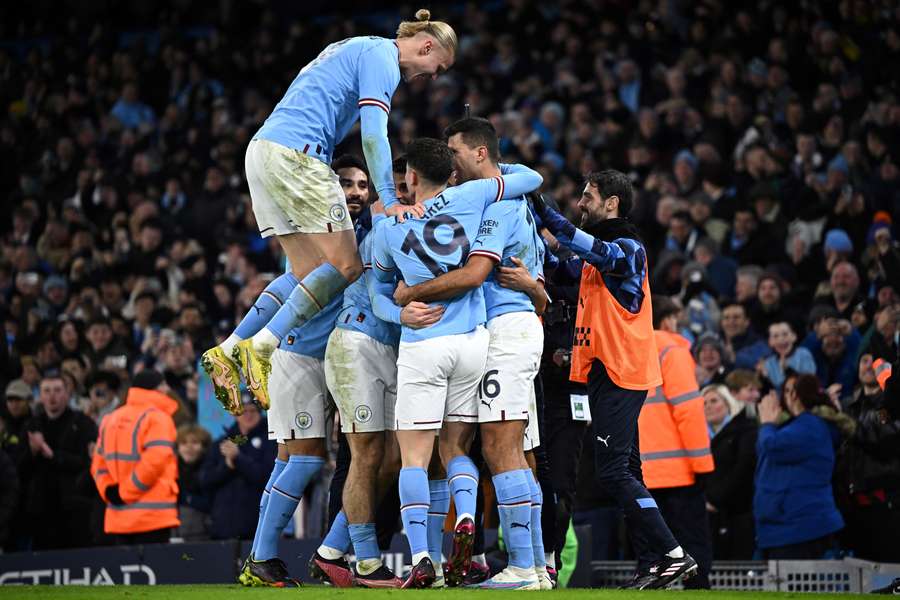
"It has philosophically turned the dial on financial sustainability. Had it not been created, we would've talked about lots of clubs massively overspending - I don't think we've had anywhere near the number of clubs go into administration that we could have had without it.
"It's helped people that have acquired these clubs be a bit more business savvy and less emotional with their purchasing decisions, so those clubs are in a much safer financial position than they might have been.
"However, it has also fueled a reduction in competitive balance, meaning these super-elite clubs emerge and leave everybody else behind.
"Look at the situation at Everton. They haven't been in Europe, they've been running up these massive operating losses and now they're in all sorts of bother. If you get into the Champions League every season, you're £60 million richer than anybody else in the Premier League each year, which then becomes self-fulfilling."
Activating takeover mode
And now, gone are the days when fans can wish for a rich owner to come and bring their club out of the doldrums.
"The rich owner thing doesn't work anymore because of the FFP. The Saudi Arabian Public Investment Fund can't do with Newcastle what City did ten years ago. They can't just say, 'there's a billion quid, go and spend it on player talent' because that will breach FFP.
"It challenges clubs to operate in a different way: get the right management staff in, all those little marginal gains that we should have been working on rather than just blowing money on playing talent all the time, eventually accelerating transfer fees to a point of just barrage.
"At one point around 2010, if Abramovich had said 'right guys, here's the keys to the club, I don't want any of my money back, it's yours,' it would have pretty much gone into administration the next day as they didn't have the operating revenues to pay for the running costs of the club. That's what we have to avoid. Hence the FFP regulations have been broadly helpful in that regard."
With no end in sight regarding the influx of money entering the Premier League, it's likely English football's spending power won't be slowing down any time soon.
While the likes of Barcelona sell off their futures in a gamble to remain competitive in Europe, and Serie A bosses fume over the spending power of Bournemouth, English football's massive global appeal means an eye-catching investment opportunity is never too far away if a club finds itself in any serious financial difficulty. Whether it's for sport-washing or Netflix documentary purposes.
And as the zeros get added to the running costs, so too they are added to the revenues, particularly as English clubs continue to stay the course up to the lucrative latter stages of each European competition.
However, it remains unlikely that we'll see another Manchester City or Chelsea-style transformation any time soon. But with money flowing from top to bottom - and over half of Europe's top 20 richest clubs from England - it seems there's no end in sight when it comes to the Premier League's transfer spending dominance.

